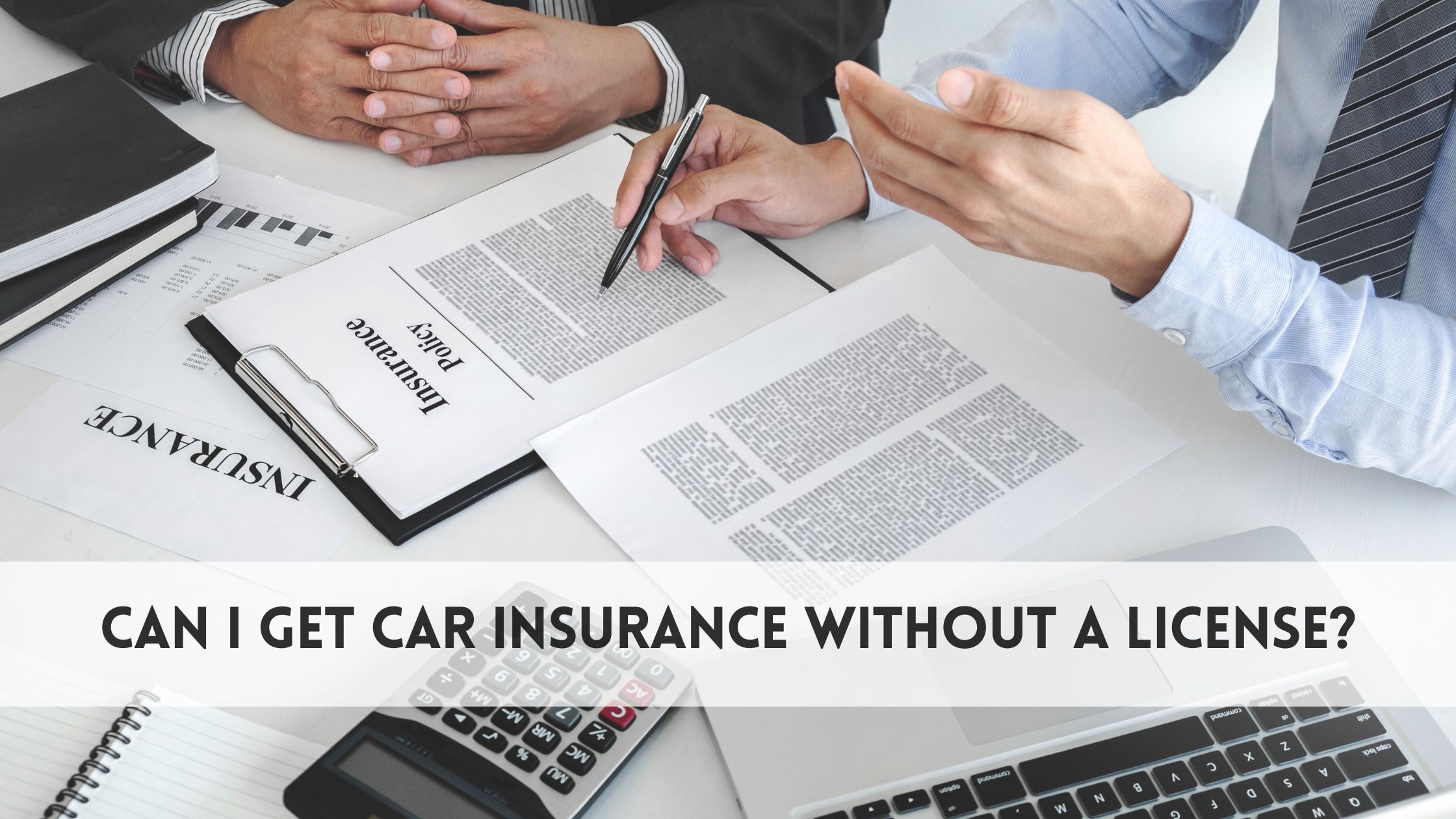How Umbrella Insurance Works and What It Covers

Do you ever worry about the potential financial fallout from a lawsuit or accident? If so, umbrella insurance may be the solution for you. Umbrella insurance is an extra layer of liability coverage that can protect your assets beyond what your home or auto insurance policy provides. It’s important to understand how umbrella insurance works and what it covers in order to make informed decisions about your coverage needs.
Introduction
Umbrella insurance is a type of liability insurance that offers an additional range beyond your existing policies, such as auto or homeowners insurance. It acts as a safety net, protecting you against unexpected events that could result in expensive lawsuits.
Umbrella insurance covers various damages, including bodily injury and property damage caused by you or a family member. It also covers other liabilities such as slander, libel, false arrest, and invasion of privacy.
At Hull Maynard Hersey, our team of experienced agents can help you navigate the complexities of umbrella insurance policies to find the right coverage for your specific needs. We work with several reputable insurers to offer you competitive rates and provide knowledge that you have adequate protection in case something unexpected happens.
How does Umbrella Insurance operate?
Understanding how umbrella liability protection functions can help you protect your finances and assets in case of unforeseen accidents or lawsuits. Umbrella insurance supplements your existing coverage, providing additional liability protection beyond what is covered by your home, auto, or boat policies. For instance, let’s say you cause an accident that results in medical bills and damages exceeding the limits of your auto insurance policy. In this case, umbrella insurance would cover the remaining amount up to your policy’s limit.
Umbrella insurance also covers legal fees associated with defending yourself against a lawsuit for damages exceeding your primary policy’s limits. If you are sued for an amount more significant than your home or auto insurance will cover, umbrella liability protection can help pay for any legal fees incurred during defense proceedings.
In addition to covering legal costs and excess liabilities, some umbrella policies cover incidents not typically protected by standard procedures, such as libel, slander, false arrest or detention, invasion of privacy, and defamation claims.
Incidents where your umbrella insurance may be applicable
Umbrella insurance can shield you and your family from claims or lawsuits that may arise in various situations, depending on your policy. For example, it can provide coverage for incidents such as bodily injury liability, property damage liability, and personal injury liability. Additionally, umbrella insurance often includes protection not found in standard auto or home policies, which makes it a valuable addition to your insurance portfolio.
Umbrella insurance may protect you and your family from claims or lawsuits for the following, depending on your policy:
Injuring another person: If someone is injured on your property, for instance, umbrella insurance may cover the cost of medical bills and legal fees if the injured party decides to sue you.
Damaging a third party’s property: If you accidentally damage someone else’s property by backing into their car with yours, your umbrella policy could help pay for the repairs.
Defamation, libel, slander, and invasion of privacy lawsuits: Umbrella insurance can also protect against defamation, libel, slander, and invasion of privacy lawsuits. It means that if somebody accuses you of harming their reputation or violating their privacy in some way – whether through social media posts or other forms of communication – your policy may cover any resulting legal expenses.
Owner liability: Owner liability coverage under an umbrella policy can also safeguard against false imprisonment claims.
False imprisonment: Protection against false imprisonment claims can be included in your umbrella insurance policy, providing peace of mind and financial security in case of legal action.
Another benefit of umbrella insurance is that it frequently offers protection not included in a standard auto or house policy. It includes:
False custody, imprisonment, or arrest: Umbrella insurance often provides additional protection not found in your standard policies for your home and car. This type of insurance can cover false custody, imprisonment, arrest, wrongful prosecution, unlawful entry or eviction, and breach of privacy. A standard homeowner’s or auto policy doesn’t typically cover these situations.
Wrongful prosecution: Umbrella insurance is supposed to provide additional coverage for unforeseen events, but when it comes to wrongful prosecution, it can create a nightmare for policyholders. Wrongful prosecution claims can be costly, time-consuming, and emotionally draining. Understanding your umbrella insurance policy and ensuring you’re protected is crucial.
Unlawful entry or eviction: Unlawful entry can happen when someone enters your property without your permission. It could lead to damage to your property or even theft. With umbrella insurance, you can be covered for any legal expenses related to these incidents.
Breach of privacy: An umbrella policy may provide coverage if you’re involved in a lawsuit related to volunteer work that you’ve done in your community or if someone is injured on your property while you’re traveling abroad. With the added protection offered by an umbrella policy, you can have greater peace of mind knowing that you’re well-covered when unexpected events occur.
What an umbrella policy doesn’t cover?
- Umbrella insurance won’t cover damages caused by intentional acts or criminal behavior. It means that if you intentionally cause harm to someone or commit a crime, your umbrella policy won’t provide coverage for the resulting damages.
- Umbrella insurance also doesn’t cover damages related to certain business activities. Suppose you’re involved in a business venture that’s not covered under your standard policies, such as running an unlicensed daycare out of your home. In that case, your umbrella policy won’t cover any liability issues arising from that activity.
- Umbrella insurance doesn’t typically provide coverage for damage to your property. While it can help protect against liability claims brought against you by others, it generally doesn’t cover damage to your car or home.
Pros and Cons of Umbrella Insurance
Pros:
- One great benefit of umbrella insurance is that it provides additional liability coverage and legal defense costs at an affordable price. It means that if you were to be sued for damages that exceed the limits of your primary insurance, your umbrella policy would kick in and cover the remaining expenses up to your policy limit.
- Additionally, umbrella insurance covers events like libel and slander that your primary insurance may not cover.
- Another advantage of having umbrella insurance is that it typically offers global coverage. It means that even if you travel outside the country, you’ll still be protected against unexpected incidents.
- Furthermore, some policies may even cover boats or other rental items for which you need separate insurance. Overall, umbrella insurance is a wise investment as it provides peace of mind knowing you’re protected from unforeseen financial liabilities.
Cons:
- One of the cons is that you must already have property or auto insurance, typically homeowners’ insurance, before being eligible for an umbrella policy. If you don’t have any underlying insurance, you’ll need to purchase it first to add an umbrella policy.
- Additionally, the umbrella policy and any underlying insurance may need to be with the same provider, which limits your ability to shop around for lower individual policy rates.
- Another con of adding an umbrella policy is that increasing your liability coverage on your current plans may improve your overall premium expenses.
- While additional liability coverage can provide peace of mind in case something unexpected happens, weighing the cost against the potential benefit is essential. You should assess how much extra coverage you need and whether the added expense is worth it for your specific situation.
Overall, while there are some cons associated with adding an umbrella policy, it’s still worth considering as a way to protect yourself from financial ruin in case of a catastrophic event or lawsuit.
Is umbrella insurance worth it?
Investing in umbrella insurance is worth it! Umbrella insurance provides additional protection beyond the coverage limits of your other insurance policies, such as home or auto insurance. It means that if you are found liable for damages exceeding the limits of those policies, your umbrella policy will kick in and cover the remaining costs. Without an umbrella policy, you could pay out-of-pocket for those excess damages.
While some may argue that they don’t need umbrella insurance because they have never been sued before or don’t have many assets to protect, it’s essential to consider the potential risks and costs involved in a lawsuit. Legal fees and settlement amounts can quickly add up, even if you think you are in the right. Additionally, accidents can happen at any time and without warning. It’s better to be prepared with extra coverage than risk losing everything you’ve worked hard for.
Things to consider before buying a personal umbrella insurance policy
Before deciding to buy a personal umbrella insurance policy, it’s essential to consider a few key factors.
- First, calculate the worth of all your assets to determine how much coverage you need.
- Secondly, examine your insurance contracts to ensure they provide enough liability coverage.
- Lastly, consider any potential risks or liabilities not covered by your current policies and factor those into your decision-making process.
By taking these steps, you can make an informed choice about whether or not an umbrella policy is right for you.
Our friendly agents at Hull Maynard can help you navigate the process of obtaining umbrella insurance, so you can feel confident in your coverage. When finding the right umbrella policy, our agents will take the time to understand your unique situation and provide tailored recommendations that fit your budget.
At Hull Maynard, adequate insurance protection is essential for peace of mind. That’s why we’re committed to helping our clients find comprehensive coverage that protects them from unexpected events.
Conclusion
Hull Maynard can assist you with obtaining an umbrella insurance policy. Let’s dive into what exactly this type of insurance covers. Essentially, umbrella insurance provides additional liability coverage beyond what is covered by your other policies, such as auto or homeowners insurance. It means that if someone were to sue you for damages and the cost exceeded the limits of your primary policy, your umbrella policy would kick in to cover the remaining costs.
Umbrella insurance can cover a variety of scenarios, such as bodily injury, property damage, and even libel or slander claims. It can also provide coverage for legal fees and settlements if necessary. Remember that while it may seem like an unnecessary expense, having an umbrella policy can protect you from financial ruin in the event of a lawsuit.
If you’re considering obtaining an umbrella policy or have questions about your current coverage, don’t hesitate to contact Hull Maynard Hersey Insurance Agency. Their experienced agents are happy to assist with any concerns or needs regarding your insurance policies. Remember, protecting yourself and your assets is always a wise investment in the long run.
FAQs
Is umbrella coverage worth the money?
A type of insurance known as umbrella coverage offers additional liability protection above and beyond what is provided by your other insurance plans. While it may seem like an unnecessary expense, the added security it provides can be invaluable in the event of a lawsuit. Ultimately, whether umbrella coverage is worth the money depends on your circumstances and level of risk tolerance.
Is excess liability insurance the same as umbrella insurance?
Although they are frequently used synonymously, umbrella insurance and excess liability insurance are different. While both provide additional liability coverage beyond the limits of a primary insurance policy, excess liability insurance typically covers a specific type of liability, while umbrella insurance offers broader range.
What is the maximum amount an umbrella policy will cover?
A type of insurance known as an umbrella policy offers additional liability protection above and beyond the scope of your other insurance policies. The maximum amount of coverage that an umbrella policy will provide varies depending on the insurance company and the specific policy.
With an umbrella policy, what happens to the insured?
When an insured individual has an umbrella policy, they have an extra layer of protection beyond their primary insurance coverage. If a lawsuit or liability claim exceeds their primary policy limits, the umbrella policy kicks in to cover the remaining costs.
Do retired people require umbrella insurance?
Retired people may require umbrella insurance to protect their assets and future income from potential lawsuits or accidents. Although they may have fewer liabilities than younger individuals, they still have assets that can be at risk. Umbrella insurance can provide additional coverage beyond the limits of their existing policies and offer peace of mind during retirement.



